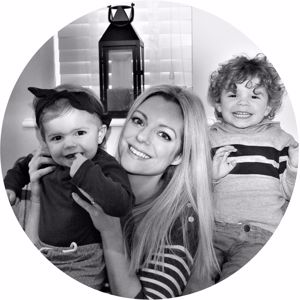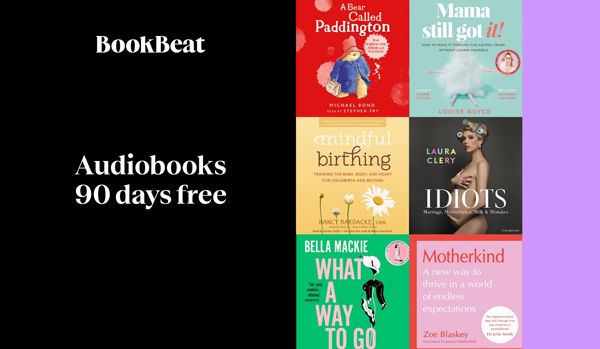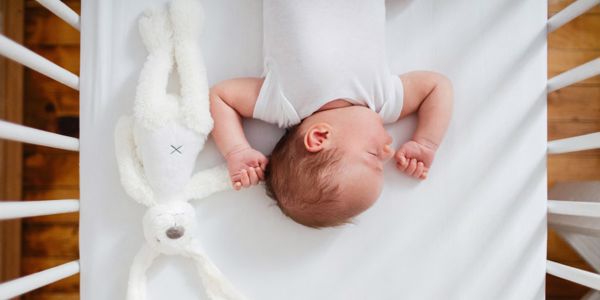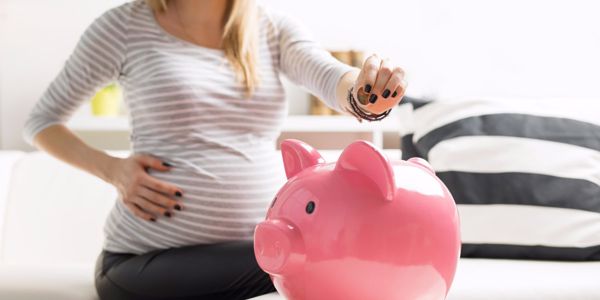Bringing a new little human into the world can be an expensive business! Before they make their almighty arrival, you may have found yourself with plenty of time to plan for and buy the ‘big’ stuff you’ll need such as a pram, car seat, cot…but what about when they’re here and you’re faced with ongoing (and possibly unexpected) costs?
I have recently had my third baby, and even I had to take a long trip down memory lane to refresh myself on what our needs may be when planning a budget and finances for a new baby.
Costs have increased so much since my last baby, so this is an ever-evolving budget plan! The costs do increase as the baby gets older and starts to wean, so this is something to bear in mind when planning your monthly finances.
But, how do you budget for a new baby? Here's everything you will (probably) need to buy every month with a newborn!
Milk
This will depend upon whether you’re breastfeeding or bottle feeding.
I have breastfed all three of my children, so I haven’t had the added expense of formula milk (although I’ve probably made up for it in chocolate consumption!). If you have chosen to formula or combi feed your baby, you will need to budget for the cost of formula milk.
The cost will vary depending on whether you choose powdered or ready-made milk. Powdered milk is more cost-effective, but can be trickier to use if you are away from home, as you will need to take a flask of boiling water and pots of powder with you to make up the milk safely.
Newborn babies will only need small amounts of milk at first, and the daily amount of formula needed will increase depending on your baby’s weight. Most parents report that a tub of formula milk lasts them between three to six days for full feeds depending on their baby.
Don’t forget to factor in the cost of sterilising fluid for cleaning your bottles and flasks, and also the electricity costs for boiling your water to make the milk (this is important for killing any bacteria in the powdered milk).
Nappies
Once feeding is established, a new baby is usually expected to have approx six to eight wet nappies a day and two to three poos.
Wet nappies are an important sign that your baby is getting enough milk. Some babies may have more wet and dirty nappies than others, especially if they become intolerant or allergic to certain foods such as cow's milk or egg (foods can pass through into breastmilk, and formula is made with cow's milk too).
When our baby was reacting to an egg allergy, she was having 12 dirty nappies a day!
It is more cost-effective to buy the larger packs of nappies – currently, a jumbo pack of 80 nappies from the leading brand will cost you about £15, which is approx. 18p per nappy. Don’t forget you will also need nappy sacks to put your dirty nappies in too.
If you go for reusable nappies, then after your initial outlay, your only costs are the use of the washing machine to wash the nappies. Over a longer period of time, reusable nappies are the more cost-effective option (especially if you have more than one child), and of course, every reusable use is one less nappy in a landfill! Check out places like Vinted or eBay for preloved nappies to keep the initial costs down.
Wipes
You’ll get through these like nobody's business!
Even though you can find cheap options, the amount you need to mop up a poop blowout means they don’t last long. I would definitely recommend looking into reusable wipes, even if you don’t go for reusable nappies. They are much better for cleaning up poos and don’t end up in landfill. Again, the cost of reusables is just the wash, and they can go in with your usual washing load.
Check out my previous post about the benefits of cheeky wipes!
Food
Once your baby hits that six-month mark, you will start to introduce food into their diet. This may start with baby rice and simple fruit or veg purees but will quickly lead onto finger foods and snacks, especially if you’re following the principles of baby-led weaning.
Although the saying “food before one is just for fun” is correct, and your baby should still continue with their milk feeds as their main nutrition, they will require more substantial amounts of food as they get bigger, and you will need to allow for wastage too (hello food on the floor!).
This is a real and definite cost to budget for, especially with the increase in food costs in the UK at the moment. Puree jars and pouches are often around £1 each, which makes them super expensive. If you have the time, try to make and freeze your own purees in batches, or allow your baby to have the same meal as you are (but give them a portion without any added salt).
Baby Groups and Classes
Taking your baby to groups and classes is an essential part of their development and is good for parental well-being too. Depending on the type of class you choose, the costs can vary.
Most local churches will hold baby and toddler stay-and-play sessions for a small donation of a couple of pounds. More structured classes such as baby sensory, baby massage, messy play or musical classes usually cost between £5-7 a class, but these are often payable per term in advance.
For one weekly class, allow between £25 – £35 a month. Increase this accordingly depending on how much you intend to get out and about.
Nursery or Childminder
This may not be an issue in the early months whilst you’re on maternity leave, but you will need to budget for the cost of childcare if you intend to go back to work. Do look into this carefully.
One of the reasons I didn’t return to my primary school teacher job was because by the time I had paid for nursery fees, wrap-around care (Teachers are more like 6 am-6 pm than 9 am-3 pm) and petrol to get to work and back, there as about £20 left in the pot…not enough to warrant my return really!
Childminders, nannies, or private day nurseries are all options, and the costs do vary depending on location and setting. Even if you get free childcare help from the Govt, this isn’t actually enough to cover the nursery costs and so you will be charged a ‘consumables’ or ‘snack’ uplift to help cover the costs.
Petrol and Travel Costs
This is a very real expense in the present day. Within the first few weeks of life there will be midwife appointments, possibly hospital checkups and maybe even a few trips to the GP if your baby becomes unwell.
You will also likely have travel costs for baby groups and classes, days out, visiting family or friends and taking your baby to and from childcare.
Clothes
Depending on how savvy you are, this may or may not be a monthly cost. You may have been lucky enough to have preloved clothes handed down to you, which really will help with costs.
Buying new clothes for your baby as they grow is often a quarterly experience based on the fact clothing is often 0-3, 3-6, 6-9 and 9-12 months.
How much this costs you will depend on whether you build your baby’s wardrobe from preloved items from Vinted, Ebay, local selling sites, NCT sales, charity shops or high street stores.
Whatever options you decide on from the above, there is no denying that babies do cost a lot of money to keep them healthy and well. If you are currently expecting and are worrying about how to manage the extra monthly expense, try to put money aside each month now ready for when the baby is here.







